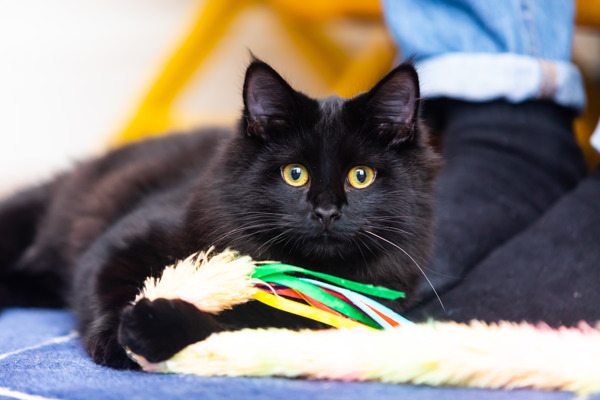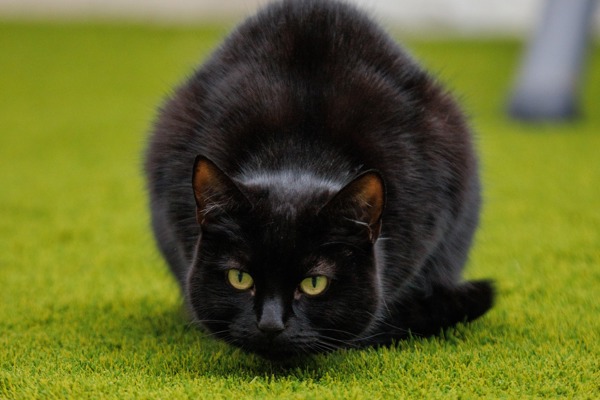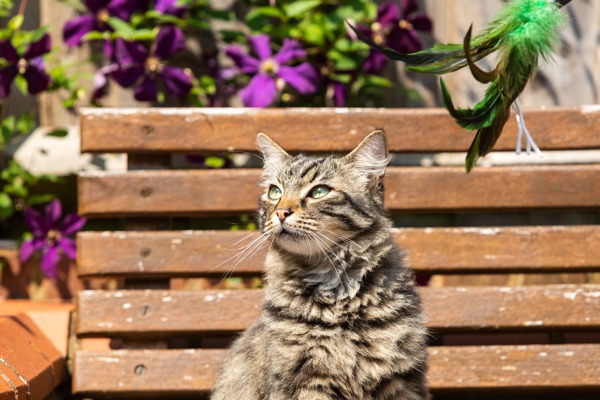When cats bring mice, birds and other prey home, they’re not bringing you a gift. Find out how to stop cats bringing in dead or live animals
Cats bring so much joy to our lives every day, offering unconditional love, loyal companionship and a calming presence. However, there is one other thing they can sometimes bring that can be rather unpleasant and upsetting, especially if you’re squeamish or a lover of wildlife.
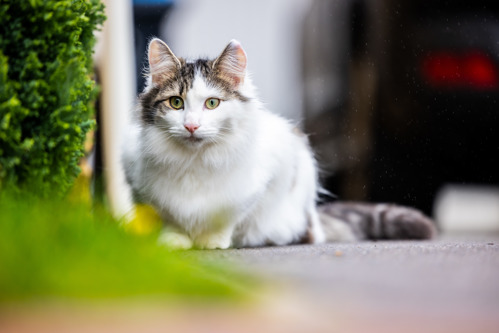
Cats are predators with a natural instinct to hunt, so if they go outdoors they are likely to show an interest in the local wildlife and attempt to catch rodents, birds and other small prey. This drive to hunt is not motived by hunger, so even if they are well fed at home, they will still have an inbuilt need to chase and catch things.
If they are successful at catching their prey, they may kill and eat it straight away, but sometimes they may bring it back to the house, either alive or dead.
Why do cats bring mice and other animals home?
Some cat owners mistakenly believe cats bring their prey home as a generous gift, as a way to show their love and provide for their family. Another myth is that the cat is trying to teach their owner how to hunt, presenting the result of a successful catch to show them what they need to do.
However, the real reason why cats bring these ‘gifts’ home is because their home is where they feel safe and secure. When cats catch prey they may not want to eat it or leave it where other animals could steal it from them. This is why they bring it back to their core territory, where they know they can eat it undisturbed, or store it safely for later. While it’s not a gift or present for you, it can still be considered a sign of love, as it shows they feel safe with you!
Why do cats bring random objects home?
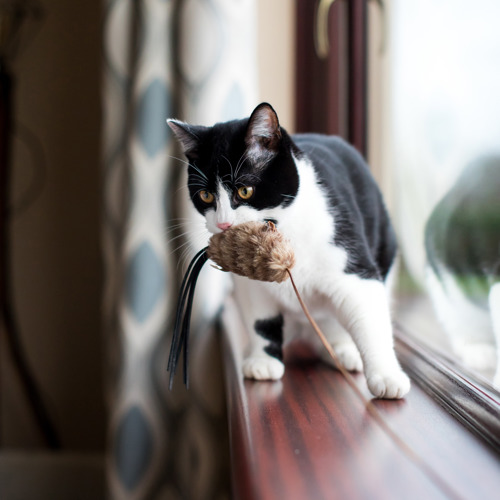
Some cats may bring home random objects such as leaves or branches, toys, human or cat food, and even the neighbour’s laundry they’ve hung out to dry. Just like with bringing home dead or lives animals, these objects aren’t actually a gift for you. The cat will have brought the object home because they find it interesting, perhaps because it smells appealing to them or it moves in a similar way to their prey.
By bringing it into their home territory, they can explore it safely and avoid others stealing it from them. However, if you notice your cat has brought home any human food, it’s best to remove it from their reach (or better still, return it to where it came from) as many human foods can be unhealthy or even poisonous to cats. If your cat has brought home any other objects that belong to someone else, you may want to try and return them so you don’t upset the neighbours!
Why do cats play with their prey?
If you’ve ever seen your cat hunting a mouse, you may have witnessed them repeatedly catching the animal and then letting it go. This can look like the cat is ‘playing’ with the creature, but this hunting technique is actually used to tire the animal out, making it easier to kill and reduce the cat’s chance of being injured in the hunt.
What to do when cats bring home dead or live animals
It’s important not to punish your cat for catching wildlife or bringing their prey home, as they won’t understand what they’ve done wrong. As hunting is a natural instinct for cats, shouting at them won’t deter them from doing again, and will only cause them stress which could lead to other unwanted behaviours. If your cat does bring mice, birds or other animals home, try not to react.
- If the animal is dead, safely get it away from your cat, as if your cat eats it they could get an upset stomach. For small animals such as mice, rats, rabbits, hedgehogs and small birds, double bag the animal and place it in your general/household waste bin. Wear gloves and wash your hands thoroughly afterwards. For larger animals, contact your local authority for advice.
- If the animal is alive, keep your cat in another room so they cannot get to it, then gently encourage the animal out of the house. Most animals will naturally find their way back outside if they have a clear route. Keep your cat indoors for a little while after the animal has gone outside, to give it a chance to get to safety and avoid your cat catching it again.
- If the animal is injured, contact the RSPCA in England and Wales, the USPCA in Northern Ireland or the Scottish SPCA in Scotland for advice.
How to stop cats bringing in dead or live animals
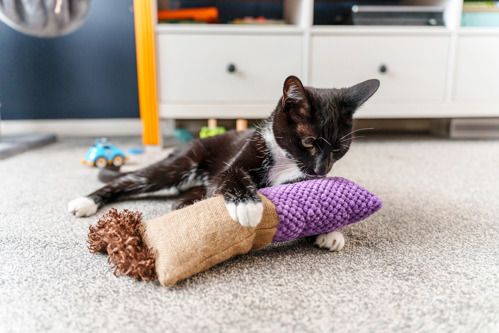
Although hunting is a natural instinct for cats, there are ways you can try to protect the local wildlife from being caught and ending up in your home.
- Keep your cat inside from dusk until after dawn. Cats and their prey are typically most active at dawn and dusk, so keep your cat indoors during these times to reduce the likelihood of them hunting prey.
- Have regular playtime. Redirect your cat’s natural need to hunt onto appropriate cat toys, such as fishing rod toys, kicker toys and feeding puzzles. Incorporate regular, short play sessions into their daily routine to use up some of their hunting energy. Find out more about cats and play.
- Keep wildlife feeders out of reach. If you like to feed the wildlife in your garden, make sure you put the food somewhere that your cat can’t reach, as they may take advantage of feeding time as a good time to pounce.
- Feed them a high-quality meat diet. Studies have shown that feeding your cat a diet that’s high in protein may make them less likely to hunt. Look for a good quality complete cat food (it should say ‘complete’ on the packaging) to keep them happy and healthy. Find out more about what to feed your cat.

